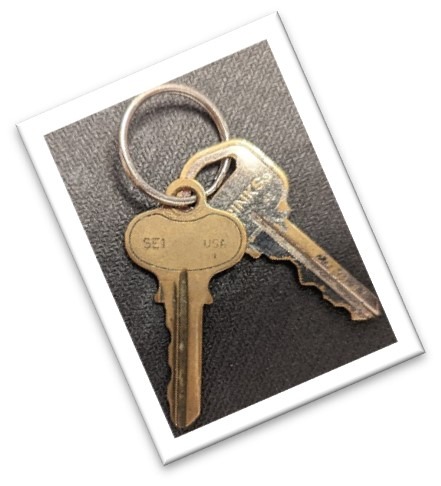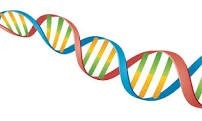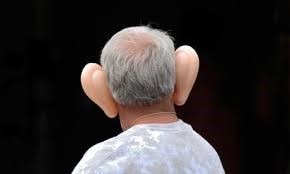Parshas Re’eh
The Two Most Important Keys That You Must Have!
“He will be merciful toward you…” (Devarim 13:18)
This week is Shabbos Mevarchim Elul. We announce that Rosh Chodesh Elul will begin this coming Sunday and Monday.
A sign had been posted in the main shul of Kovno that Rav Yisrael Salanter would be giving a drasha (Torah discourse) in the afternoon of Shabbos Mevarchim Elul. Rav Yisrael entered the shul and walked past the aron kodesh to speak. He called out, ‘Rabbosai, we have already bentched Chodesh Elul.” At that moment that Rav Yisrael cried out the word “Elul”, he fainted from the awesomeness of the month. It is the month that we examine and improve our actions even more than the other months. We prepare outrselves for Yom Hadin, the Day of Judgement, of Rosh Hashana. We hope and plan for a good new year.
There is so much that we need to do to improve to prepare for Rosh Hashana. Rav Chaim Shmuelevitz zt”l gives two recommendations which can help us emerge meritorious in judgement (Sichas Mussar in the year 1972, shmuess # 38).
The Talmud (Rosh Hashana 17A) quotes Rava who says that if one is mevater, if he ignores and forgoes injustices done to him, the Heavenly court in turn forgoes punishment for all his sins. The Talmud continues with a story. Rav Huna, son of Rav Yehoshua, became sick. Rav Pappa went to visit him. When he saw that Rav Huna was dying, Rav Pappa said to his attendants to prepare his shrouds (Rashi). Miraculously, Rav Huna recovered. Rav Pappa was embarrassed to see him, as it seemed as if he had decreed Rav Huna’s death. Rav Huna’s friends asked him, “What did you see when you were lying there suspended between life and death?” He replied that he was truly close to dying. Rashi says that he was supposed to have died. However, the Heavenly court determined that Rav Huna was a person who was mevater, he ignored insults and waived what was due to him. He was not exacting in judgement to others. Therefore, the Heavenly court was not exacting with him in his judgment. Even after death was decreed and Rav Huna was near death, he was spared.
The Talmud quotes Rav Acḥa bar Chanina who qualifies this by saying that Hashem forgives the sins of one who is mevater only if the reason that he is mevater is due to his humility.
Rav Chaim’s second segulah and recommendation is learned from this week’s Parsha. The Torah discusses an “עִיר הַנִדַחַת”, the Wayward city. That is a city where most of its inhabitants were persuaded to serve idols. The Torah says that the guilty parties are killed by the sword. The entire city with all its property is destroyed. It is eternally forbidden to rebuild that city (Devarim 13:13-19).
Or HaChaim explains that along with the mitzvah to kill the inhabitants of this Wayward city comes a major peril. This act would normally uproot the trait of mercy and cause cruelty in the hearts of those who killed the sinners. It normally would even create a desire to murder! In fact, the Chofetz Chaim zt”l was very concerned that the Jewish soldiers returning from battle in World War I would have a tendency towards killing.
In this situation of those who killed the inhabitants of the Wayward City, Hashem gives a special promise that He will give them mercy, preventing their actions from automatically causing them to become cruel (Devarim 13:18).
The Torah adds “וְרִחַמְךָ”, “and He will be merciful,” to teach us that when we are cruel to others that is how Hashem act towards us [I assume that this means that Hashem will judge us justly but strictly, according to our actions]. However, when we are merciful to others, then Hashem will also be merciful to us.
The Talmud spells this out (Shabbos 151B). Rabbi Gamliel, son of Rabbi Yehuda HaNasi, quotes the pasuk, “And and He will be merciful toward you and He will show you mercy….” (Deuteronomy 13:18) This teaches us that anyone who has compassion for Hashem’s creatures will receive compassion from Heaven, and anyone who does not have compassion for Hashem’s creatures will not receive compassion from Heaven.
כׇּל הַמְרַחֵם עַל הַבְּרִיּוֹת מְרַחֲמִין עָלָיו מִן הַשָּׁמַיִם, וְכֹל שֶׁאֵינוֹ מְרַחֵם עַל הַבְּרִיּוֹת אֵין מְרַחֲמִין עָלָיו מִן הַשָּׁמַיִם.
Rav Chaim Shmuelevitz zt”l gives us two keys to benefit us as we prepare for Rosh Hashana,
the Day of Judgement. One is to ignore and forgo injustices done to us.
The other is to show compassion to others.
These actions benefit us personally and will make the world a happier place as well!






